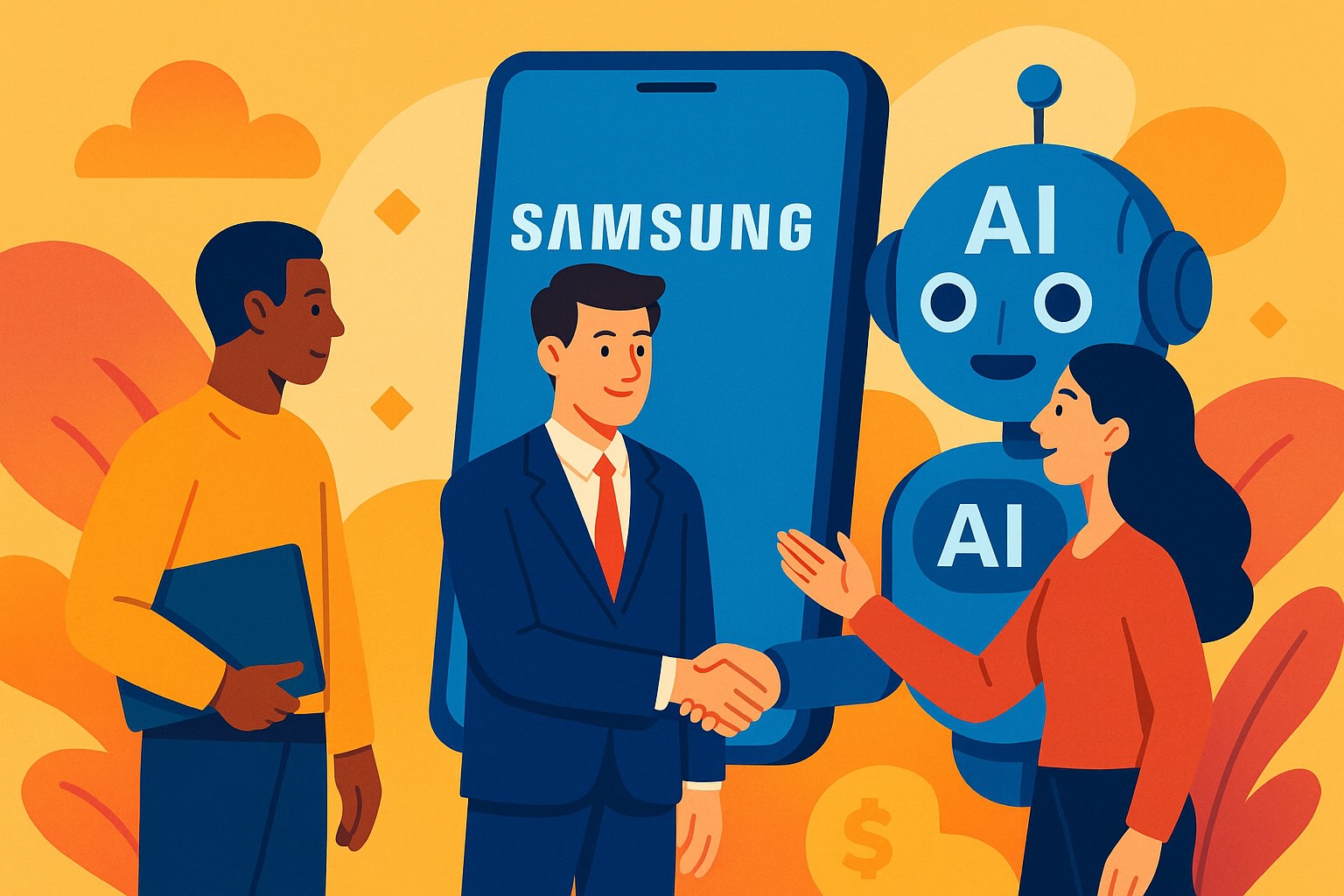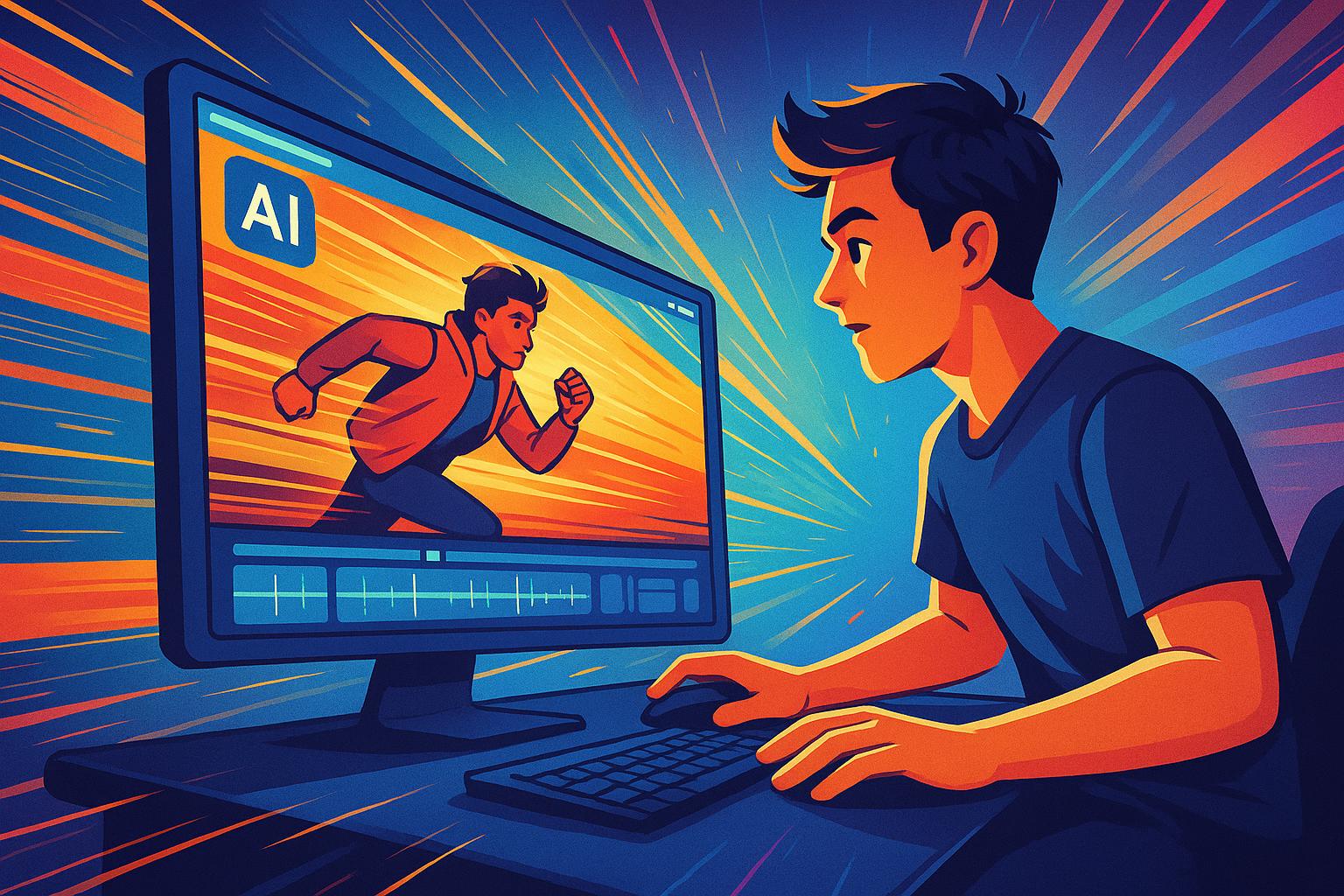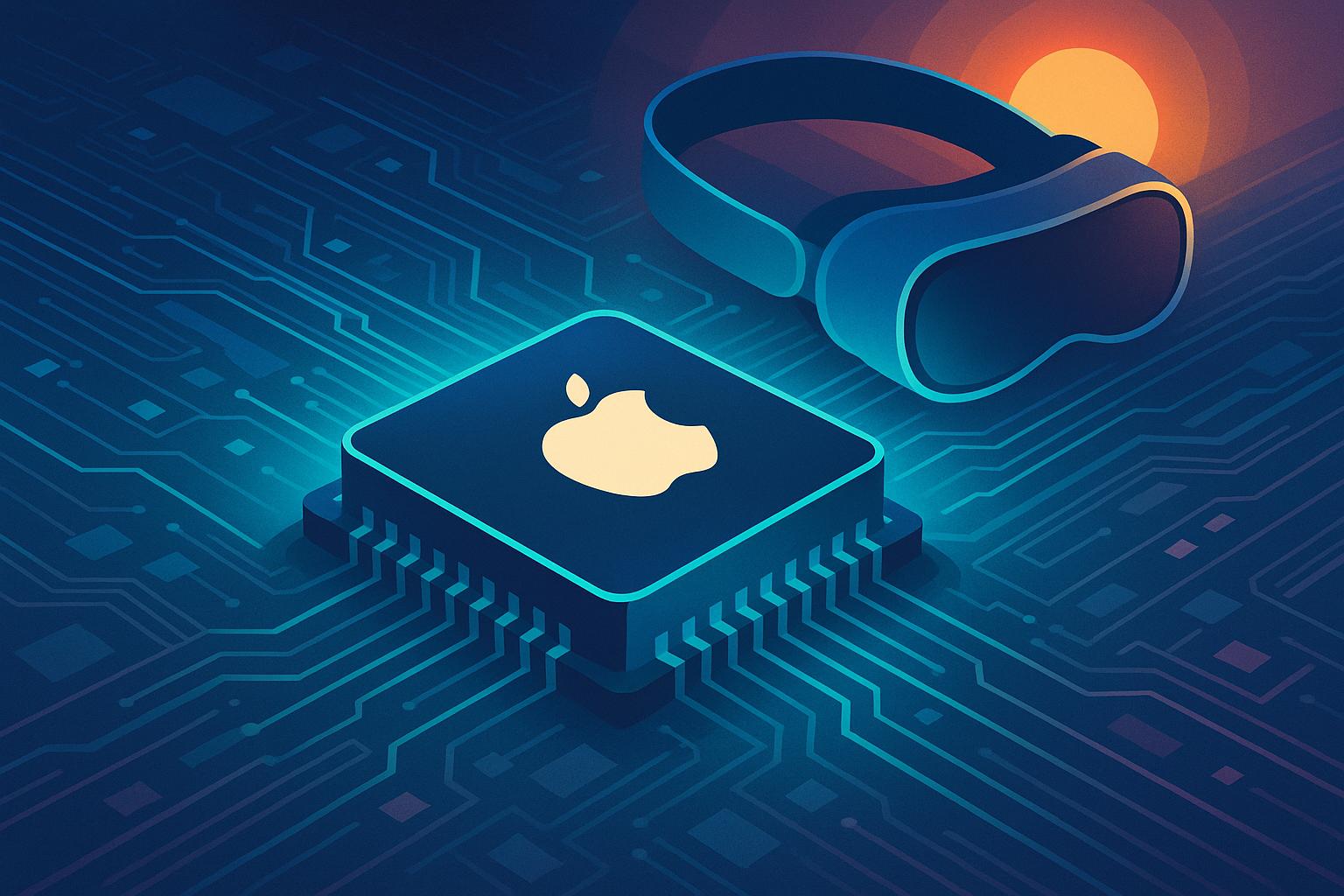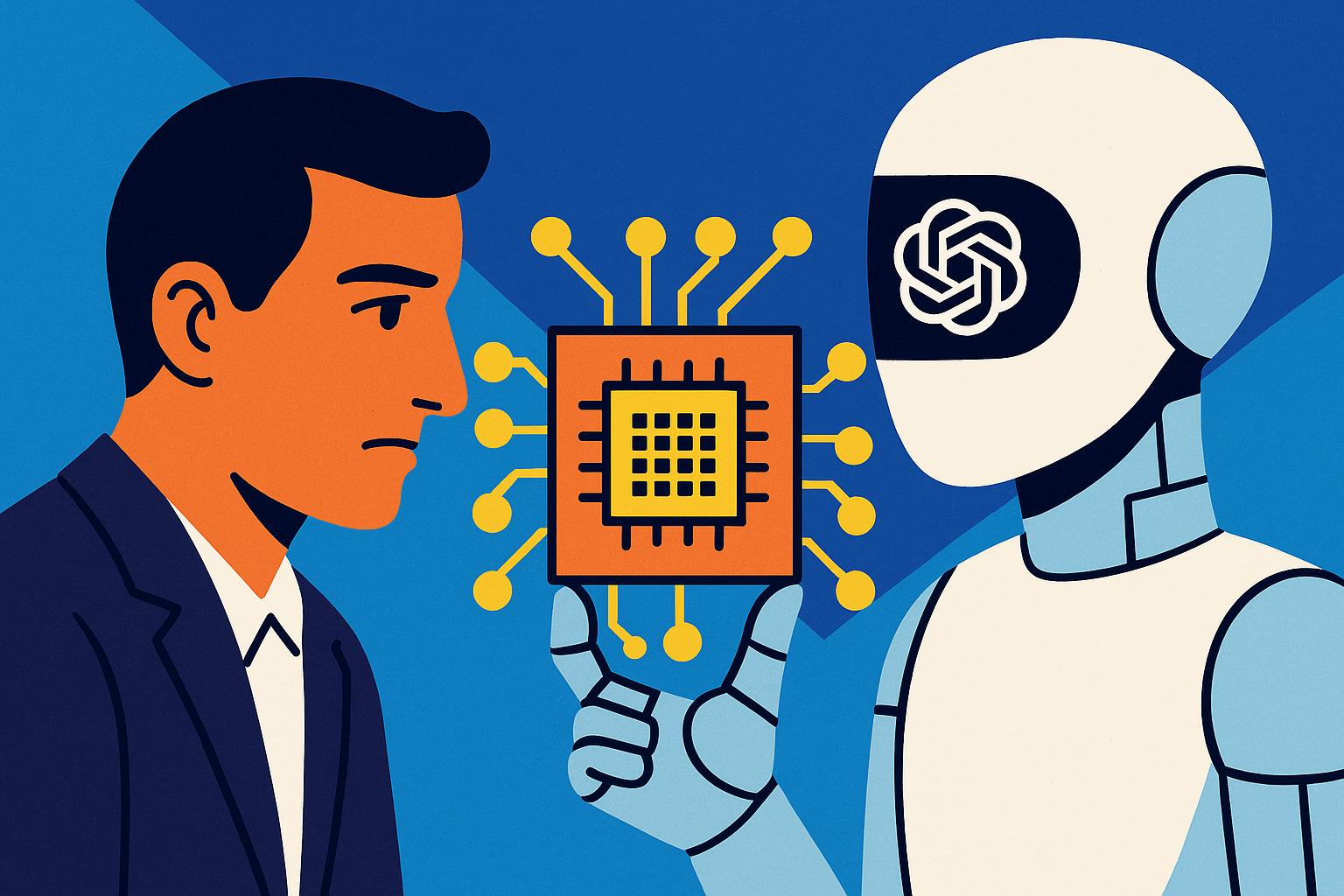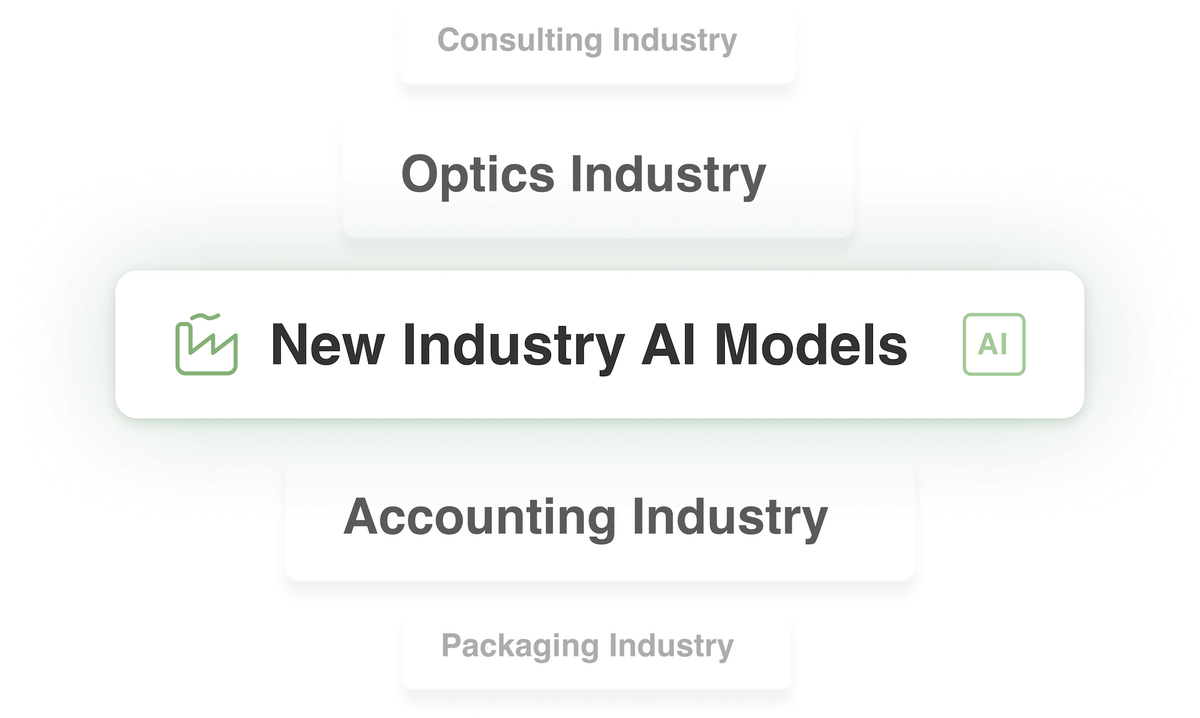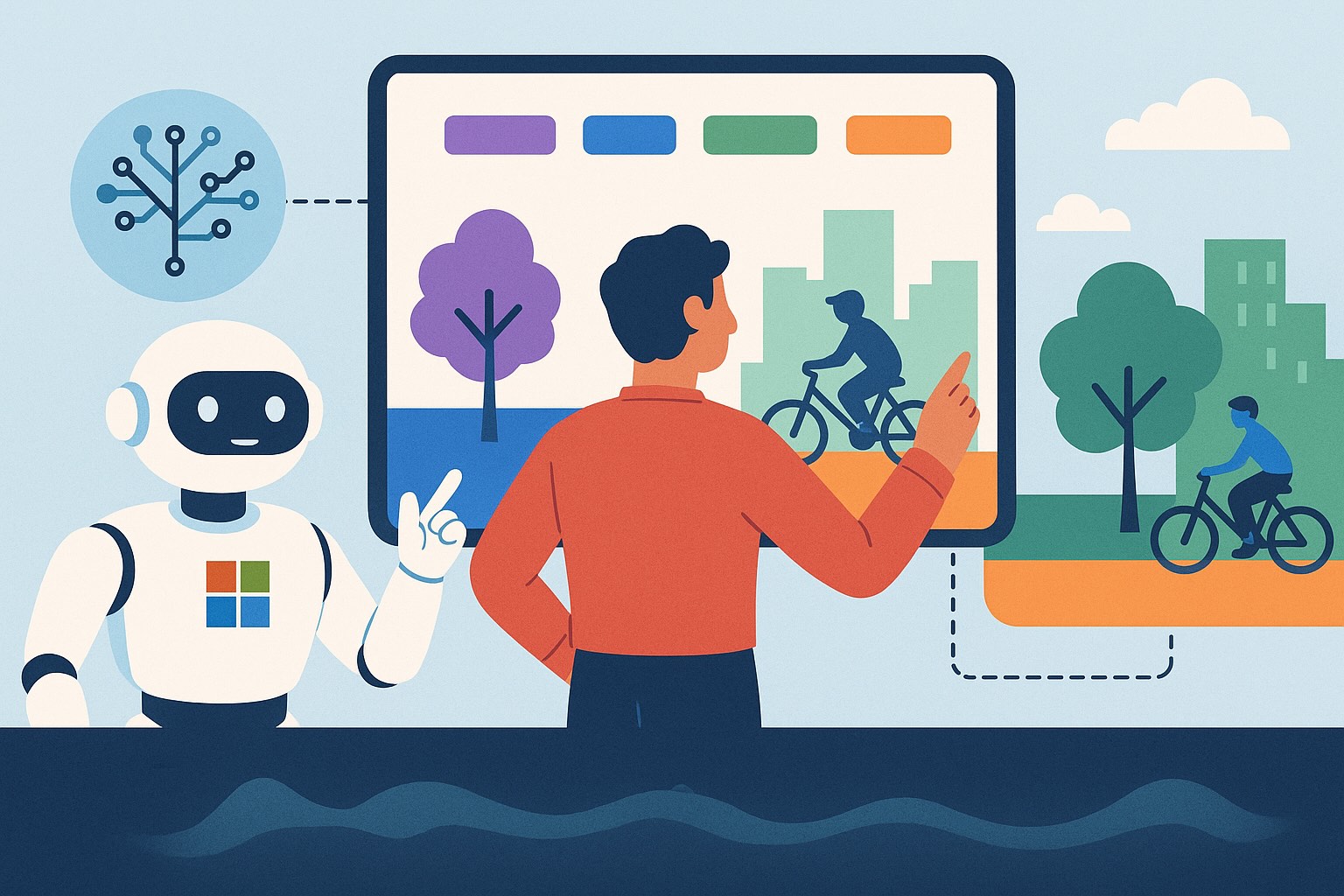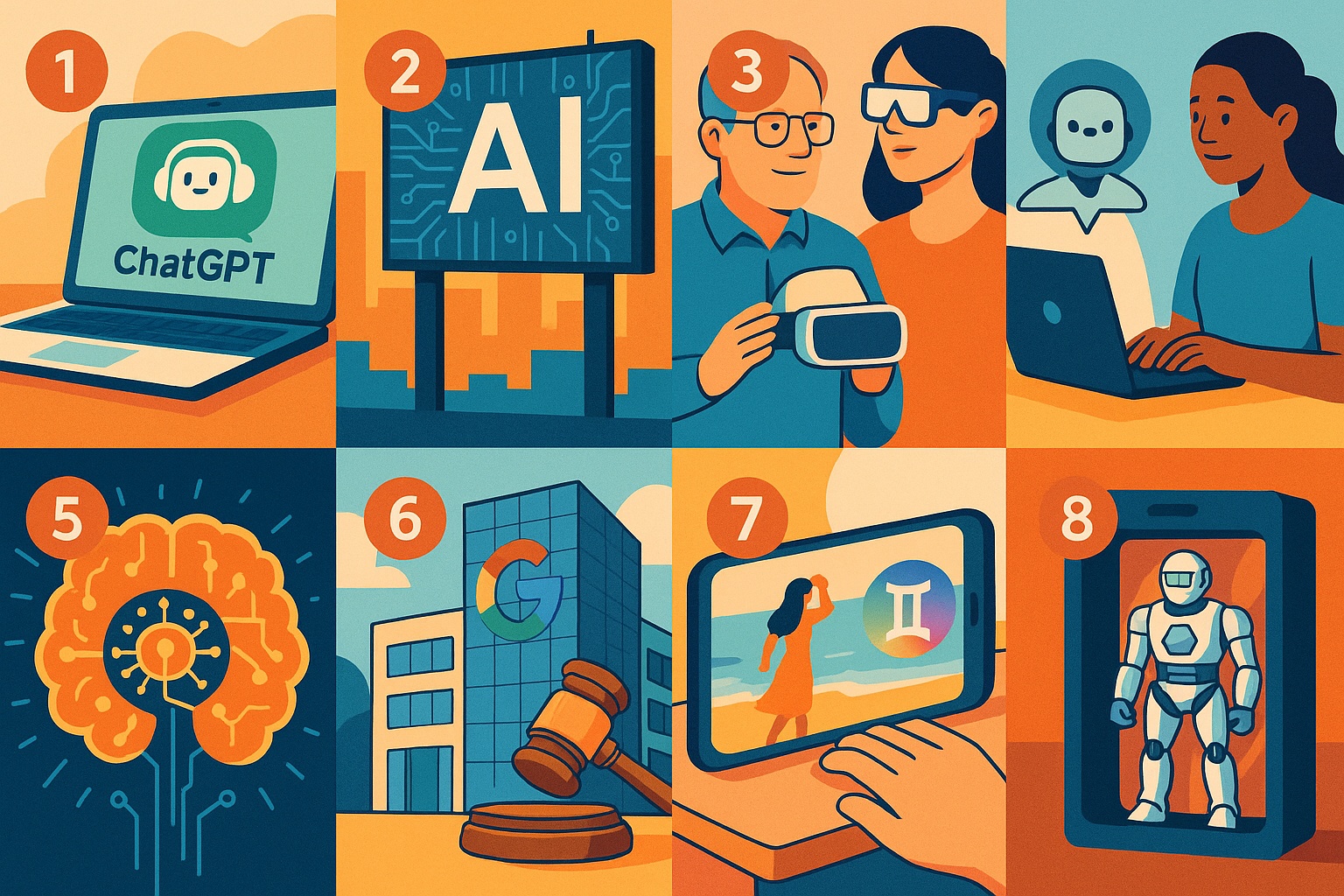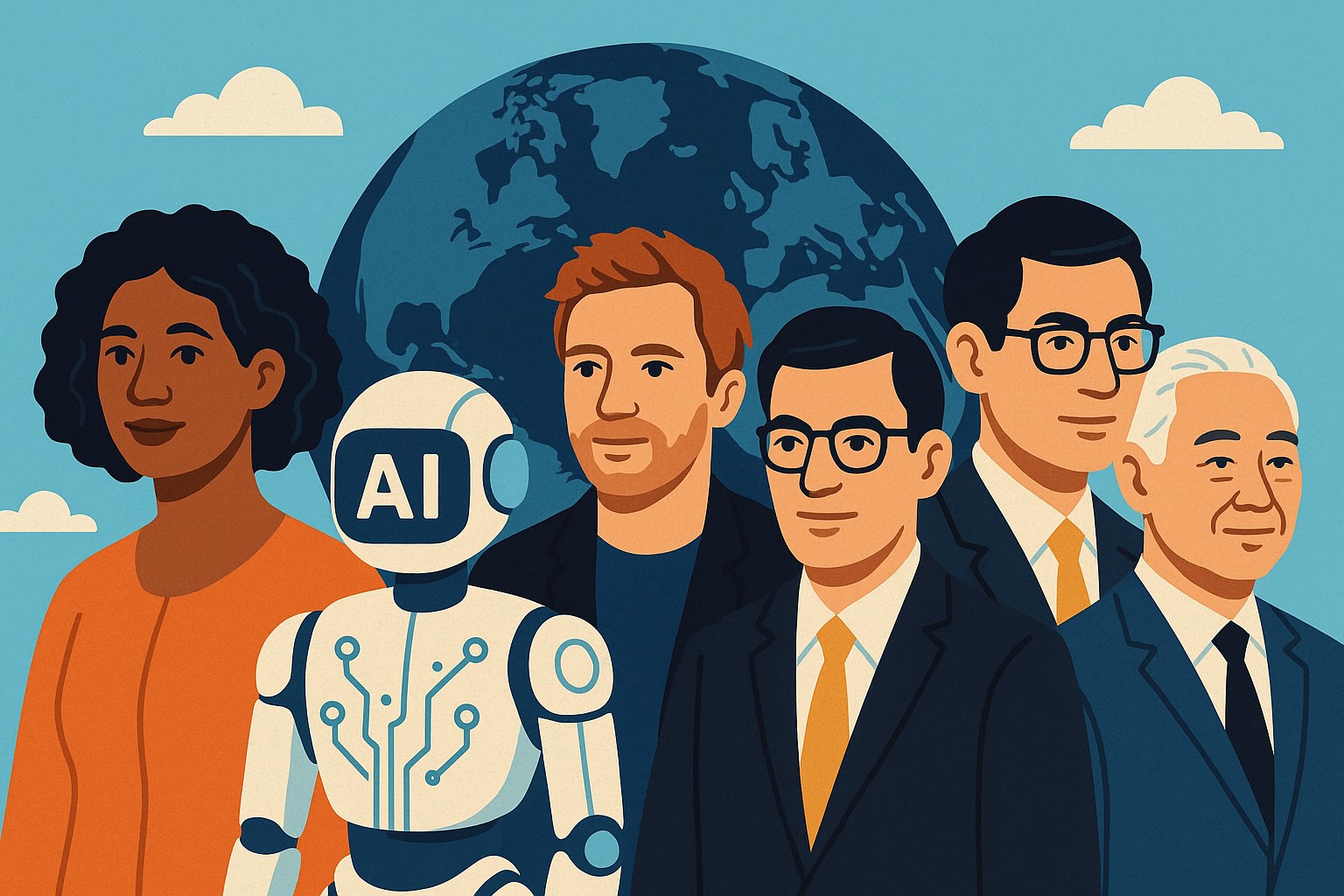Visit Our websites
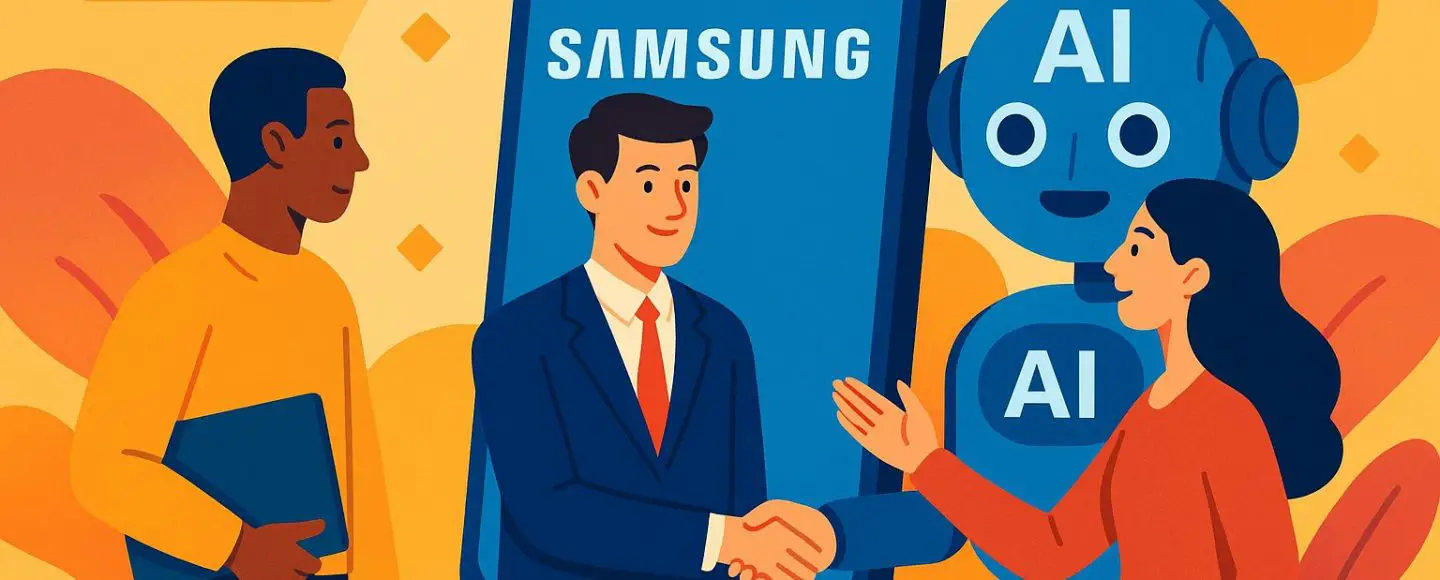
Tech Giants Pursue AI Partnerships with Samsung
Tech Giants Pursue AI Partnerships with Samsung as the race to dominate artificial intelligence integration in smartphones heats up. With the future of AI-centric devices in focus, major technology companies are vying for strategic alliances that could reshape the mobile industry. Imagine being one of the first users to experience cutting-edge AI tools right from your pocket—this is what companies like OpenAI, Meta, and Microsoft are working toward. As demand for smart capabilities grows, Samsung stands at the center of their ambitions. Keep reading to learn how these powerhouse companies are collaborating to change the nature of mobile technology.
Also Read: AI in mobile applications
Why Samsung is the Center of Attention
Samsung is not just a top smartphone manufacturer—it’s also a gateway to millions of user experiences across the globe. With its wide hardware ecosystem, Samsung holds a massive distribution potential for any embedded AI system. Tech companies are increasingly seeing Samsung’s smartphone platform as the ideal place to deploy advanced AI applications. Whether it’s through virtual assistants, productivity tools, or creative applications, Samsung offers a robust infrastructure to experiment and scale AI technologies.
As Galaxy devices continue to lead in hardware innovation, the next logical step is enhancing their software capabilities through artificial intelligence. This recognition is driving firms like OpenAI, Meta, and Microsoft toward Samsung, eager to secure deals that will put their AI features directly in the hands of millions of users worldwide.
OpenAI’s Strategy to Expand ChatGPT
OpenAI has focused heavily on expanding the footprint of ChatGPT and other generative AI tools beyond the browser. By embedding its models into operating systems and native mobile environments, OpenAI aims to make conversational AI ubiquitous. As part of this strategy, discussions have taken place between OpenAI and Samsung, with the vision to integrate their model directly into Samsung phones. Doing so would allow users to interact naturally with their devices using voice, text, or a combination of both.
By entering the mobile market through Samsung, OpenAI wants to ensure users can access ChatGPT-like features with low latency and better interactivity. This would serve as a significant differentiator in regions where internet connectivity isn’t consistent, making on-device processing more valuable.
Also Read: Samsung’s Latest Push for 3D Displays
Meta has been actively promoting its family of AI models called LLaMA, which is seen as a direct competitor to OpenAI’s offerings. Meta’s interest in Samsung centers on optimizing its models for multi-tasking across apps, social networks, messaging platforms, and augmented reality interfaces. Integrating with Samsung would give Meta a strong hardware partner to test how its AI can dynamically engage with different forms of media and interactivity.
The appeal lies in offering seamless experiences across Instagram, Facebook, WhatsApp, and future wearable devices. Partnering with Samsung aligns with Meta’s broader vision for its AI system to become a day-to-day assistant, one capable of content generation, scheduling, search, voice commands, and augmented reality enhancements. A potential deal would allow Meta to embed these capabilities within the Galaxy ecosystem—dramatically expanding its usability context.
Microsoft Plans to Integrate Copilot Across Devices
Microsoft has already included its AI assistant—Copilot—into products like Windows and Office. Now, the company is focusing on growing its presence in the mobile segment. Collaborating with Samsung represents a natural extension of its cross-platform ambitions. Microsoft envisions a scenario where users can access Copilot through their phone’s notification center, email apps, browsers, or even camera interfaces.
While Microsoft and Samsung already work together on enterprise tools such as Microsoft Outlook and Office being pre-installed on Galaxy devices, elevating the partnership to include custom AI models would unlock new dimensions. Microsoft’s primary interest lies in aligning Android’s operating system enhancements with its own AI cloud services—giving business users and consumers alike a unified experience across PC and smartphone environments.
Also Read: Samsung Bot Chef
Unique Motivations Driving Each Company
Although all three companies—OpenAI, Meta, and Microsoft—are seeking similar deals, their underlying motivations vary. OpenAI wants to establish itself as a device-native platform, not confined to the web. Meta is aspiring to use AI as a central controller across media and social environments, leveraging mobile devices for personal engagement. Microsoft, on the other hand, is focused on continuity—ensuring users can carry the Copilot experience from desktop to handheld without friction.
Samsung, knowing the stakes of choosing which technology partner to prioritize, has the upper hand. These deals are not just about embedding AI—they represent major opportunities to shape user behavior and define which tools become indispensable over time. The company that secures the most favorable position with Samsung could potentially command user loyalty for years to come.
Also Read: Unlocking Microsoft Copilot: Your AI Guide
The Rise of AI-Native Smartphones
The race to integrate advanced AI directly into smartphones is birthing a new product category: AI-native phones. These devices are expected to prioritize real-time processing, personalized experiences, and adaptive features managed by large language models. Compared to traditional smartphones, AI-native handsets can shift from reactive to predictive—anticipating user actions, needs, and preferences.
Samsung’s next generation of devices may include deeper AI infrastructure, running models directly on the device or in hybrid cloud mode. These advanced features require lighter, more optimized AI engines, and all three tech giants are refining their tools to meet that challenge. A key part of any partnership will be the ability to deliver these models efficiently without draining battery life or data consumption.
Strategic AI Collaborations and the Future of Mobile
These unfolding negotiations with Samsung represent more than individual company ambitions. They signal a fundamental shift in how mobile devices will work in the near future. By integrating AI tools more deeply, smartphones could transform into powerful hubs of knowledge, automation, and support. User expectations are changing fast, and companies that fail to adapt to this AI-driven landscape risk falling behind.
From searching the web and composing emails, to creating videos and managing schedules, the era of generalized artificial intelligence on the go is just around the corner. Partnerships between Samsung and leading AI providers could make these innovations a standard, not an exception, in smartphones by default.
Conclusion: A Tipping Point for AI and Mobility
Tech giants are racing ahead to shape what the future of AI on mobile looks like, and Samsung holds the keys to accelerate their success. OpenAI, Meta, and Microsoft each bring powerful solutions to the table—but their success may depend on how well they integrate with hardware leaders like Samsung. These AI partnerships are more than marketing moves—they are foundational shifts destined to redefine everyday mobile experiences. The coming year could determine which assistant, platform, or app becomes the new go-to interface for global smartphone users.
Also Read: AI Revolutionizes Mobile Devices by 2025
References
Anderson, C. A., & Dill, K. E. The Social Impact of Video Games. MIT Press, 2021.
Rose, D. H., & Dalton, B. Universal Design for Learning: Theory and Practice. CAST Professional Publishing, 2022.
Selwyn, N. Education and Technology: Key Issues and Debates.Bloomsbury Academic, 2023.
Luckin, R. Machine Learning and Human Intelligence: The Future of Education for the 21st Century. Routledge, 2023.
Siemens, G., & Long, P. Emerging Technologies in Distance Education. Athabasca University Press, 2021.
BONUS LINK VISIT NOW
Visit Our websites


